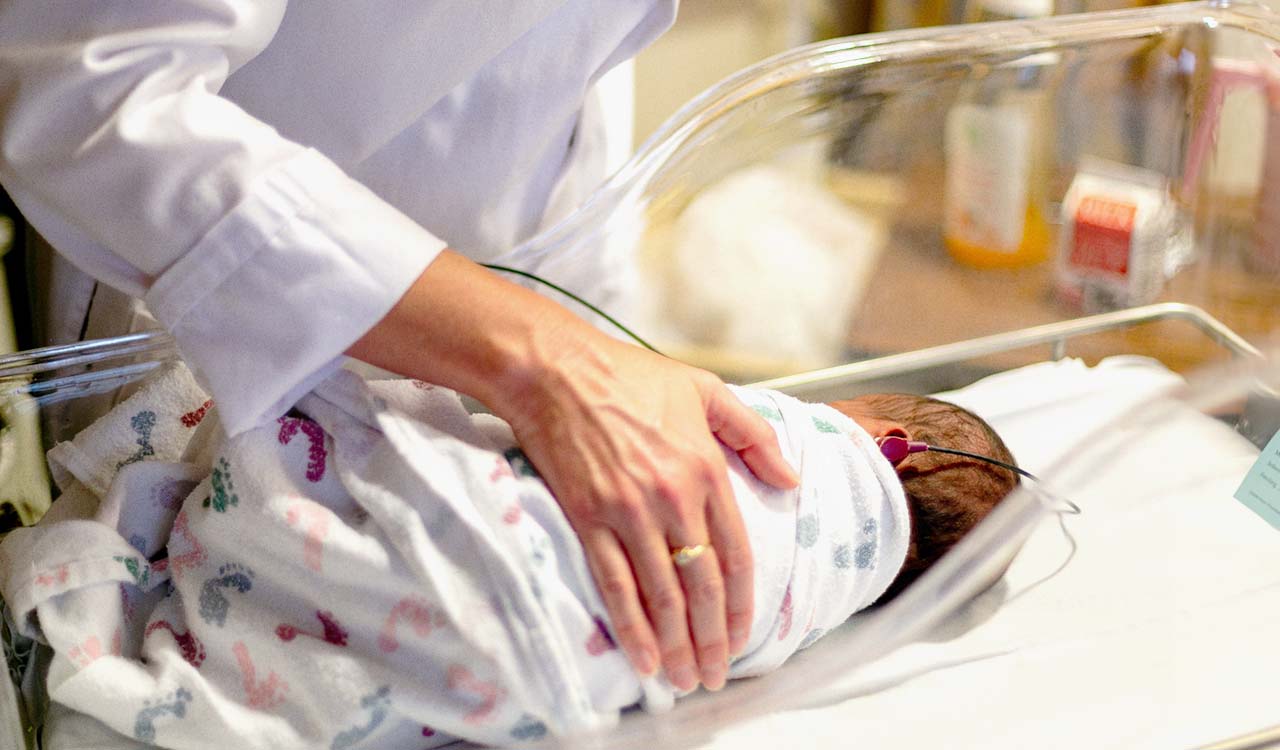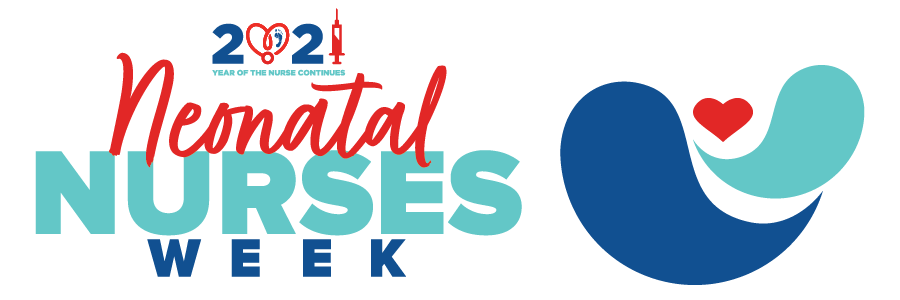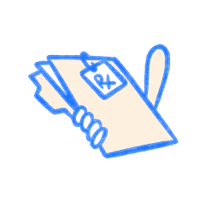What is neonatal nursing?
Neonatal nursing is a subspecialty of nursing that includes providing care to neonates, or newborn babies. As professionals that care for the youngest and most vulnerable of us, neonatal nurses have one of the most demanding, yet rewarding jobs of any nurse.
While the term neonate technically refers to the first four weeks of a baby’s life, neonatal nurses often provide care to sick newborns for several months. There are many potential health issues that newborns can encounter, including premature birth, infections, surgical problems, injuries, and birth defects.
While health problems are difficult with any patient, neonatal nurses face the difficulty of providing care to patients who are unable to communicate and have recently undergone a major physiological change.
The highly specialized care that fragile newborns require demands focused, in-depth knowledge combined with the caring and nurturing attitude needed to support not just the newborn, but their family.
What do neonatal nurses do?
The profession of nursing in general is described as a combination of science and art. Neonatal nursing is no exception to this.
The art of neonatal nursing
From the art standpoint, neonatal nurses provide care, not just to newborn babies, but also to their families at a traumatic and difficult time. Illness in a newborn is often unexpected and turns the celebration and joy of childbirth into a time of extreme stress and difficulty for the patient’s family.
A good neonatal nurse will provide emotional support to the families of neonatal patients, encouraging them and helping them through the difficult adjustment of dealing with illness in their newborn.

Neonatal nurses may have to empower parents to care for a child who will be disabled and even help prepare parents for the grief of losing their child.
The science of neonatal nursing
The science part comes from the highly technical nature of this specific subspecialty of nursing. As neonatal nurses practice the science of their profession, they will many times serve as the eyes and ears of the doctor who is often not present with the patient.
Neonatal nurses will monitor patients, often using multiple pieces of complex equipment. They may be responsible for ensuring life support equipment is functioning and will be required to continuously ensure that changes in the patient’s condition are promptly addressed.
In addition to monitoring the patient, neonatal nurses will need to administer medication and provide treatments. Providing medications to newborns is complex, as each dose must be calculated based on the patient’s weight (which will constantly be undergoing significant change).
A single miscalculation can be fatal.
Treatments can be equally complicated due to the patient’s small size and fragility. Something as simple as applying a small bandage can be dangerous to neonatal patients.
How to become a neonatal nurse
The process of becoming a neonatal nurse involves several steps. These steps center around completing education, experience, licensure, and certification.
1. Enroll in a nursing program
To become a neonatal nurse, you will first need to become a registered nurse (RN). Enrolling into an RN program typically requires having a high-school diploma or a GED. Some RN programs may require a year of prerequisite college courses. RN courses also typically have an entry exam to help admissions officers determine your academic skills compared to other applicants.
2. Earn your nursing degree
You can become an RN by either earning an associate’s or a bachelor’s degree in nursing. While either degree will technically work, a bachelor of science in nursing (BSN) is typically more highly regarded and is probably a better decision for someone who wants to specialize in a complex subspecialty, such as neonatal nursing.
One action you can take during nursing school to become a neonatal nurse more quickly is to try to obtain a preceptorship in neonatal nursing during your clinical education.
3. Pass your NCLEX exam
The National Council Licensure Examination-RN (NCLEX-RN ) is the exam that all nursing graduates must pass in order to become licensed to practice as an RN.
This exam is quite difficult, but good nursing schools will provide you with the preparation that you need to ultimately succeed. Once you have passed the NCLEX, you will be eligible to be licensed as an RN.
4. Become licensed in your state
In order to legally practice as an RN in the state you work in, you must be licensed by the board of nursing in that state. In most states the requirements for licensure include completing nursing school, passing the NCLEX, undergoing a background check, and paying a small licensure fee. Some states may have additional requirements, however, these additional requirements are often relatively simple.
5. Get experience as a nurse
Once you are an RN, all that you technically have to do to become a neonatal nurse is get a job in a neonatal intensive care unit (NICU). While this might be possible right out of school in some situations, most NICUs will not normally hire new graduates. Most RNs wishing to become neonatal nurses will work at least one year in another, but related, area of nursing, such as pediatrics.
6. Get a NICU position
After gaining initial experience as an RN, a nurse will need to get a position in a NICU to be able to become a neonatal nurse. The first few months of this new position will normally include completion of an initial orientation with an experienced NICU nurse before you begin practicing on your own.
7. Earn neonatal nursing certification
While not strictly required for employment as a neonatal nurse, neonatal certification provides huge professional benefits for anyone specializing in NICU nursing. Certification as a neonatal nurse demonstrates that you do not just have experience in the field, but have a high-level knowledge and expertise that sets you apart in the field.
There are two different neonatal nursing certifications, the CCRN (neonatal) and the RNC-NIC. These two certifications are provided by two different organizations, and expert neonatal nurses may obtain one or both.
The pros and cons of neonatal nursing
Like anything, there are both positive and negative aspects to working as a neonatal nurse. Understanding these pros and cons is important for anyone considering working in this field.
Pros
The most rewarding part of being a neonatal nurse will be different for each nurse, depending on what motivates them. But for many neonatal nurses, one of the most rewarding parts of the job is the ability to make a lasting difference in the lives of the patients and their families.
Dealing with a newborn who has a critical illness is a terrible experience for any parent, and they will remember the care that they receive during this period for the rest of their lives. For the patient themselves, the high-quality care they receive can affect their health throughout their lives, potentially meaning the difference between life and death.
Cons
While neonatal nursing can be highly rewarding, it can also be very emotionally and physically taxing. Because the patients are so vulnerable and so ill, neonatal nurses can spend a whole twelve-hour shift caring for a single patient, having to be completely focused and at peak performance for that entire period.
Beyond the physical stresses, neonatal nurses are responsible for the lives of their tiny patients. Despite the best efforts of the healthcare team, some patients will not survive, and neonatal nurses will have to emotionally deal with the death of children and the impact that it has on their patient’s families. This can make working in this role particularly difficult.
Is neonatal nursing right for you?
Ultimately, working as a neonatal nurse can be incredibly rewarding, but will also include times of heartbreak and difficulty. Neonatal nurses provide some of the most complex care possible in the nursing profession, both in the art and the science of nursing.
While NICU nursing has its difficulties, by touching the lives of the children they serve, neonatal nurses make one of the biggest differences that a nurse can make.



